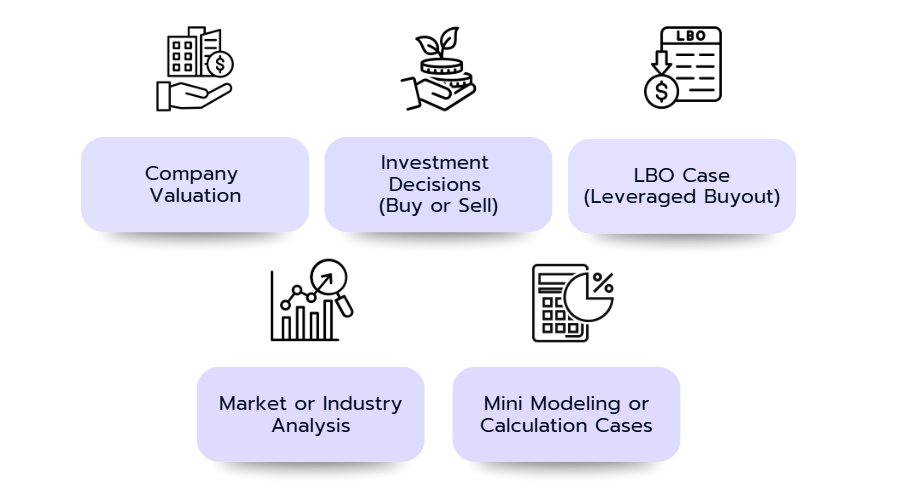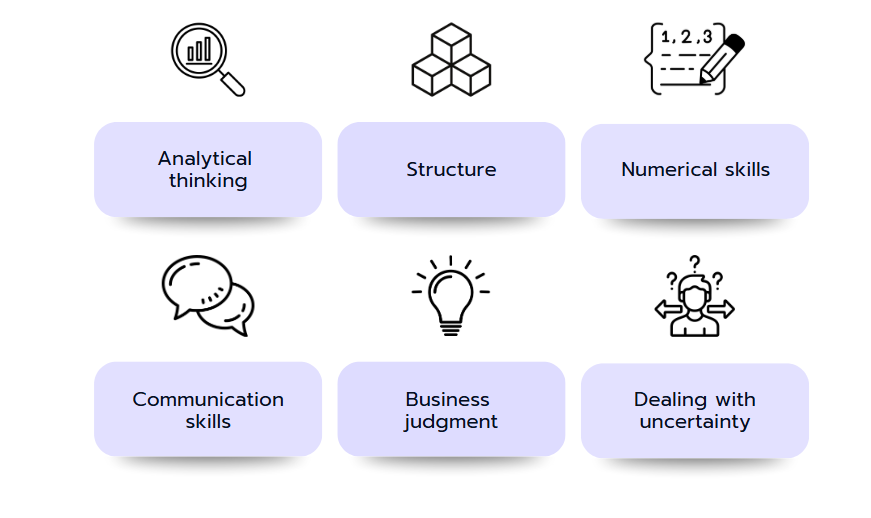When and Where Do Case Interviews Come Up in Finance Recruiting?
While case interviews are standard practice in consulting, they are less common and more varied in the finance sector. When they do appear, it’s typically in the later stages of the hiring process, such as the final round or Superday. Their purpose is to assess your business mindset, analytical skills, and decision-making ability in realistic scenarios.
Case studies are especially relevant in areas like private equity and venture capital, where you're typically asked to evaluate investment opportunities. Is the company worth investing in? What valuation makes sense? What could a potential exit look like? In many cases, you're not only expected to analyze the scenario but also to present your recommendation.
Shorter case tasks can also be part of the selection process in investment banking – such as assessing an acquisition target or analyzing a market segment, particularly in M&A or industry-specific teams.
Moreover, case studies are becoming increasingly common in strategic in-house finance roles such as corporate development, M&A, or internal consulting. These often involve market analyses, business cases, or investment decisions where you need to demonstrate strategic judgment and strong structuring skills.
Bottom line: The closer a role is to investment decisions, deal structures, or business analysis, the more likely it is that a case study will be part of your interview process.
What Types of Case Studies Are Used in Finance Interviews?
The content of finance case interviews can vary significantly depending on the role, company, and experience level. While consulting cases often focus on topics like market sizing, competitive strategies, or profitability, finance cases are usually centered around decision-making based on quantitative analysis. Still, the core idea remains the same: you're expected to show how you structure information, analyze it effectively, and draw well-reasoned conclusions.
Here are some common types of case studies you might encounter in finance interviews:

Company Valuation
In a valuation case, you're given basic information about a company, such as revenue, EBITDA, or an industry multiple and asked to estimate a rough enterprise value. Sometimes, you may also be asked to compare different valuation methods or assess whether a proposed purchase price is justified.
Investment Decisions (Buy or Sell)
In this type of case, your task is to evaluate whether an investment in a particular company makes sense. You’ll typically receive a company profile, key financial figures, and some market data. Based on that, you’ll weigh risks and opportunities and make a recommendation.
LBO Case (Leveraged Buyout)
LBO cases are especially common in interviews for private equity roles. You’ll be asked to assess whether a company is suitable for an LBO and whether the investment makes sense under certain assumptions (purchase price, debt, exit multiple). You’re not expected to build a complex model, but you should be able to reason through how cash flows affect debt repayment and the internal rate of return (IRR).
Market or Industry Analysis
These cases focus less on hard numbers and more on your commercial intuition. You might be asked whether a specific market is attractive for investment, where the main risks and opportunities lie, or how external factors could impact the business.
Mini Modeling or Calculation Cases
Especially in investment banking or corporate finance roles, you may be asked to perform simple calculations, such as assessing capital structure, debt levels, or valuation impacts. What matters most is accuracy in your math and clarity in explaining your assumptions.
👉 You can practice your calculating skills with our Mental Math Tool!

